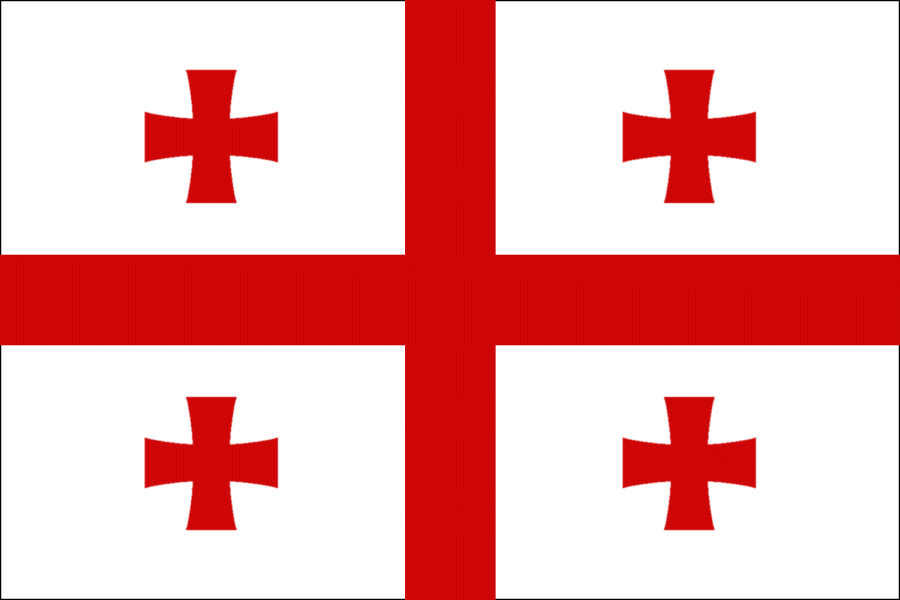Login form
Customs of Georgia
 Marriage and Family
Marriage and Family
Georgians are usually free to choose whom they marry. A traditional wedding is elaborate, with large feasts, folk dancing, and singing. Modern weddings are simpler; urban ceremonies are often quiet family events. Traditionally, a newlywed couple lives with the groom’s parents until they can afford a home of their own.
In most families, at least three generations have lived together for a considerable portion of their lives. The father is responsible for economic support, major financial transactions, and protecting the family’s old and young. The mother is most influential in the decision-making process within the household. Most women care for the household and children, as well as work outside the home. Grandparents often provide day care for children when both parents have jobs.
Urban families typically rent apartments, which were state-owned until recently. The law now allows families to buy apartments. A typical apartment has one or two bedrooms, a living room, a small kitchen, and a bathroom. Rural homes are more spacious, but construction of larger homes has declined as building materials have become more scarce and expensive.
Eating
Georgians grow a variety of fresh fruits and vegetables, as well as wine grapes and tea. The variety and abundance of the grape harvest are celebrated in mid-autumn during the rural harvest holiday, rtveli. Salads, vegetables, eggs, bread and butter, cheese, ham or sausage, and coffee or tea are eaten for breakfast, which is light if eaten early and more substantial when eaten around 9 am. Lunch is called a “second breakfast” if eaten before noon and “dinner” if eaten after noon. The “second breakfast” or “dinner” typically consists of soup and/or meat, potatoes, beans, vegetables, fruit, bread, and wine. The evening meal is called “dinner” if eaten before 5 pm and “supper” if eaten after that hour; most people tend to eat after 6 pm. Supper includes the same basic foods as the midday meal.
Dishes in western
Georgians eat with the fork in the left hand and knife in the right. Some fish and meat dishes are eaten with the hands. It used to be that hosts made a point of providing more than enough food for their guests, but many Georgians can no longer afford to do that. Traditionally, before a meal, the tamada (a toastmaster) proposes toasts to anything from national values to each individual at the table, and drinks the entire glass after each toast. It is improper to drink alcohol without first proposing a toast. Georgian wine used to be drunk from kantsi (large sheep horns that are sometimes embroidered) passed around the table.
Socializing
When greeting, Georgians shake hands and say Gamarjoba (“Hello”; literally, “Let you win”). Responses differ: For official greetings the same word is returned; in informal circumstances people respond with Gagimarjos (“Let you win”). Rogor khar? (“How are you?”) is an informal way to begin a conversation. Rogor brdzandebit? is more formal. Kargad ikavit means “Be well.” Mshvidobit (“Peace be with you”) is used for a more meaningful parting, usually when people do not expect to see each other for a long time.
Shaking hands is common even at casual meetings; embracing in a friendly manner, or kissing on the cheek, is also common, especially among young people and women. Small children might receive hugs and kisses. Adults are addressed by professional title and last name, or by first name following Batono (“Sir”) or Kalbatono (“Madam”). Using Batono or Kalbatono with just the last name is very formal, so first and last names are used in correspondence or in the media.
Georgians are generally welcoming to all guests, even unexpected ones. A popular Georgian saying is “Any guest is God’s messenger.” But once-frequent visits to friends and relatives have declined, partly because of social unrest, and partly for economic reasons; people feel they are not able to provide as adequately for guests as in the past. Still, even if invitations for a meal have become less common, most guests can expect to be offered a cup of coffee or cookies.
Recreation
Favorite sports include soccer, basketball, and skiing, and people also follow competitions in figure skating and hockey. Those with cars enjoy weekend outings. Urban residents with summer cottages spend as much time as possible there, gardening, tending to greenhouses, or just generally enjoying the outdoors.
Holidays and Celebrations
Georgians celebrate the New Year on 1 January. On New Year’s Eve, it is customary to eat a special meal and to drink champagne. These celebrations occur mostly within the family, but some people throw larger parties.
The Orthodox Christmas is on 7 January. Because this is observed primarily as a religious holiday, gifts are not commonly exchanged for Christmas. The Epiphany, which commemorates the visit of the Three Magi (or Wise Men) who brought gifts of gold, frankincense, and myrrh to the baby Jesus, is observed on 19 January.
Independence Day is celebrated on 26 May, and Our Lady’s Day on 28 August.
Source: Encarta Interactive World Atlas

